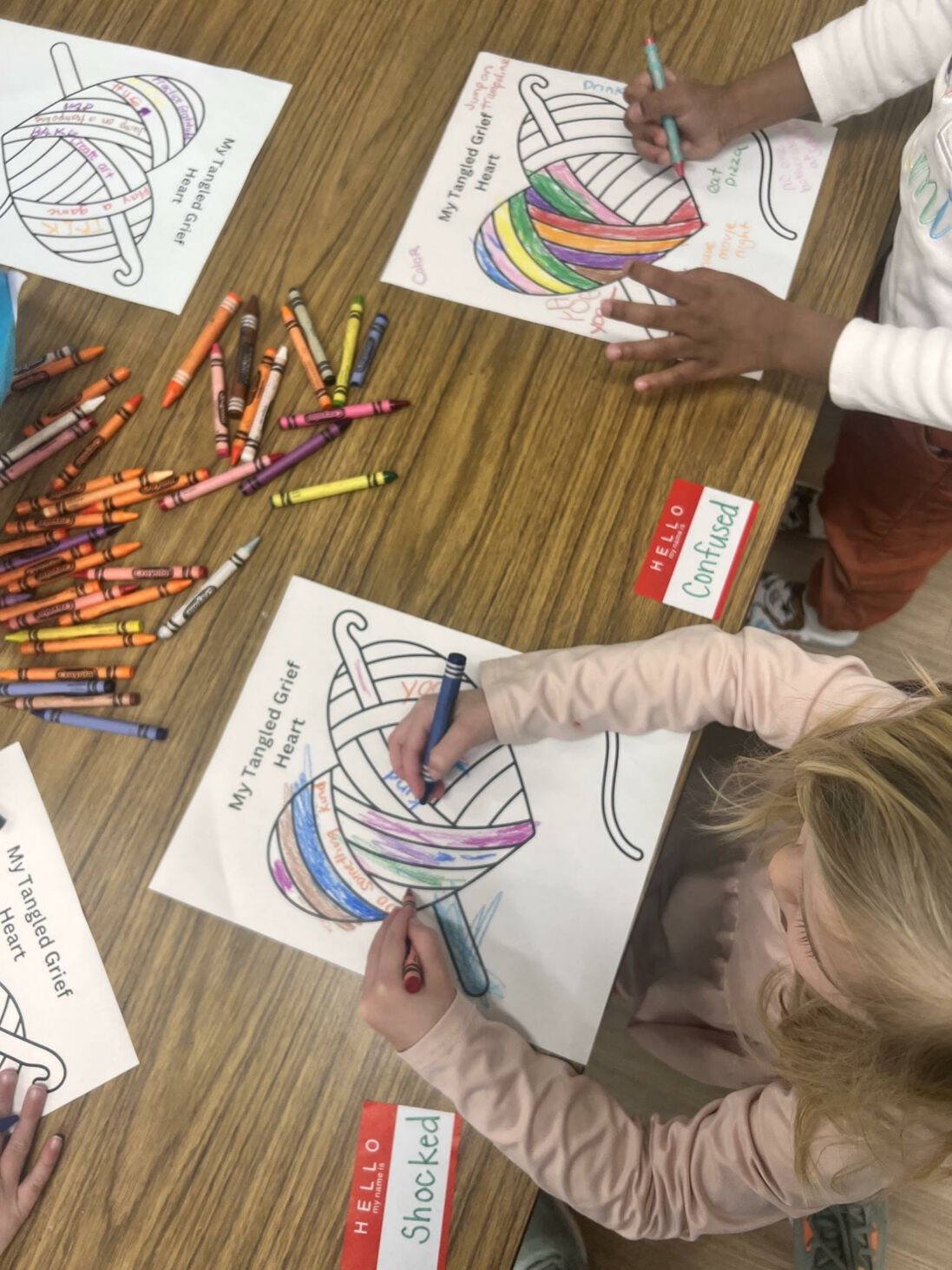
Losing a loved one can be difficult, no matter how old you are when you experience that loss. But it can be especially difficult for younger children, who may not fully understand the concept of death. The Mayo Clinic calls children “invisible grievers,” citing a tendency for them to internalize their grief because they do not have the ability to verbalize it.
Sol Levinson, one of the longest-lasting funeral homes supporting the Jewish community in the Baltimore area, already has grief support services for adults. For the first time ever, the funeral home is expanding its bereavement offerings to children with a new group, Healing Pathways, which will be meeting every Wednesday over the course of six weeks in April and May.
In the past, Sol Levinson has hosted bereavement groups for general audiences, as well as more specific offerings such as a group focused on suicide loss. Many of these were sponsored by Jewish Community Services. But there was always a gap in support when it came to children who had recently experienced loss — aside from a panel about children in mourning held a few years ago, the funeral home did not offer a dedicated space for children to discuss and process their grief.
When Heather Ralston joined Sol Levinson as its new community outreach coordinator, she decided that she wanted to bridge that gap by creating a group focused on children.
“Kids process their grief and their emotions extremely differently than adults,” Ralston explained. “As we go through the group of the six weeks, we’re really going to be targeting each individual child and the needs that they have for their type of loss, their own grief journey that they’re on. We’re meeting as a group, but it’s going to be very individualized for each child.”
The group will be hosted by Jessica Correnti, a certified children’s life specialist and a children’s book author. Correnti already runs several bereavement support groups as the head of Kids Grief Support, her Towson-based private practice. She’s also written two children’s books on the subject: “Forever Connected,” about sibling loss, in August 2022, and “The ABCs of Grief” in February of this year.
Ralston reached out to Correnti because they first met through their involvement in a nonprofit for pregnancy and infant loss. Many of Correnti’s existing support groups are more play-based, so in addition to discussions, participants in Healing Pathways will be able to partake in activities focused on gross motor skills and developing their creativity.
“Myself, Heather and almost all of our other funeral directors have young children. We often see what they need in response to grief, so a lot of our desire to reach children stems from that experience,” said Greg King, Sol Levinson’s director of grief support and community education. “We feel like there’s a greater community to serve with children and youth.”
While Sol Levinson is largely known for its support of the Jewish community and involvement with Jewish burial and funeral practices, Healing Pathways is more secular in nature and is open to any child in need between the ages of 4 and 10. Ralston noted that they have already seen a surge of interest in the group, with many parents having already signed their children up.
“I really would hope that [children participants] take away tools that they can use throughout their life to process this grief, and any other grief or trauma that they might experience, but also that they walk away feeling comfortable with the things that they have to deal with,” she said. “And that they can make friends who understand what they’ve been through. As adults, we need our own communities of support, and I hope these kids get that from each other as well.”
Helping a child process their grief starts in the home, though. In addition to enrolling their children in a support group, there are many steps a parent can take to help their child process a recent loss.
King suggests establishing an open and communicative environment at home, and being understanding when a grieving child acts out or struggles to communicate their feelings.
“The key is knowing that your kids can come to you, safely, with their feelings,” he said. “So many kids don’t express their feelings, so how they feel comes out in negative ways. They might not feel that they have a place to express themselves. During the rare circumstances where a child will come to you and express how they’re really feeling, you have to grab those times. You really do.”







